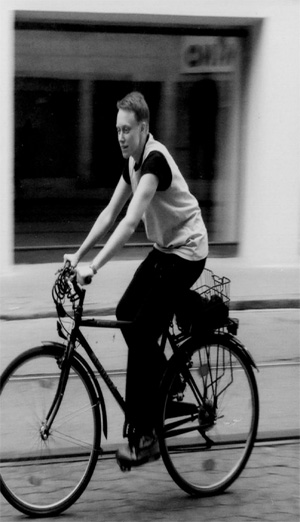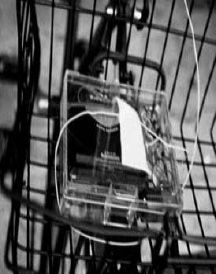The Polymerase Chain Reaction (PCR), invented by Kary Mullis in the 1980s, is an elegant bio-algorithmic process that copies a small region of DNA billions of times, thereby “amplifying” the region. In this workshop we will explore PCR’s usage in DNA identification. We will perform the process to identify a single common genetic variation using our own DNA. While the DNA thermocycler was used to speed up the PCR process, we will intentionally slow it down, focusing on the bio-algorithm itself. We will process one batch of DNA in a laboratory thermocycler, and another batch deep in the Koli Natural Forest using primordial fire and water to manually perform PCR in a collective, three hour class performance in the sauna.
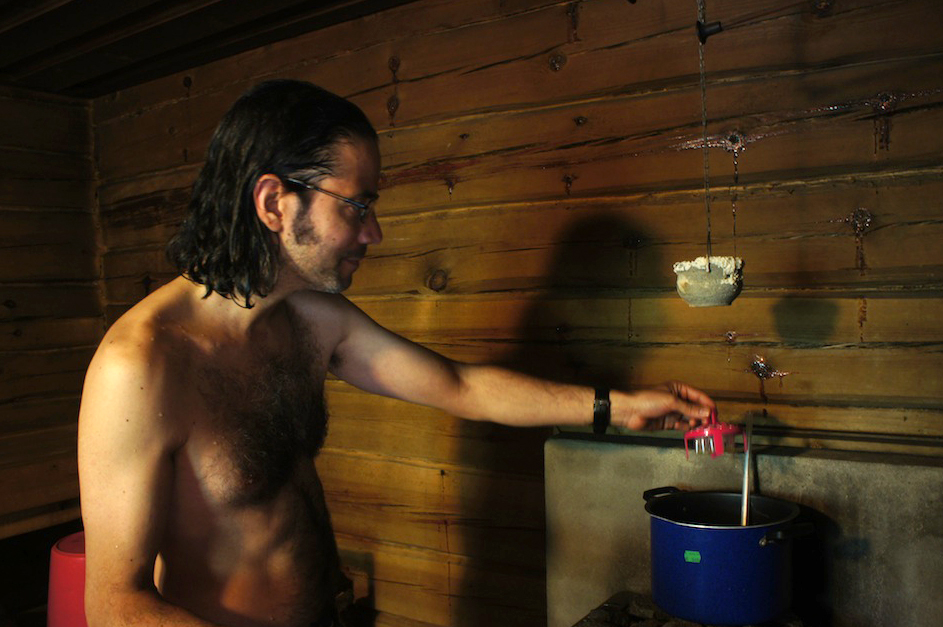
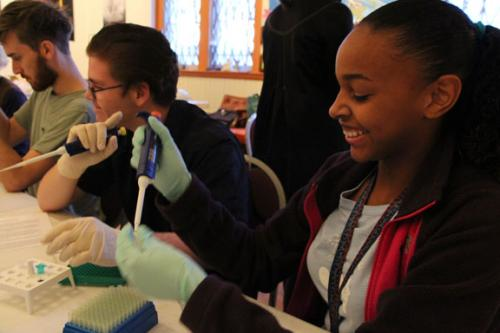
With a DIY Laboratory created in the Sanctuary for Independent Media, Vanouse will guide participants through the process of DNA extraction, amplification, and photography.
We’ll learn the processes of how DNA is maniupulated to form images, and how misinformation in popular culture about DNA fingerprinting endangers personal privacy.
Today, DNA based images hold so much weight in medical, genetic, and criminal research that they can be deemed as the most trustworthy images of our time. In fact, images based on genetic footprints have been called "Truth Machines", "God's blueprints" and "Gold standards" in the identification of suspects. This workshop focuses on his reflections and motivations as an artist, and his way of working with DNA in his projects. In the course of the three day workshop, through a careful selection of enzymes, the participants will replicate recognisable artistic images and icons using DNA bands.
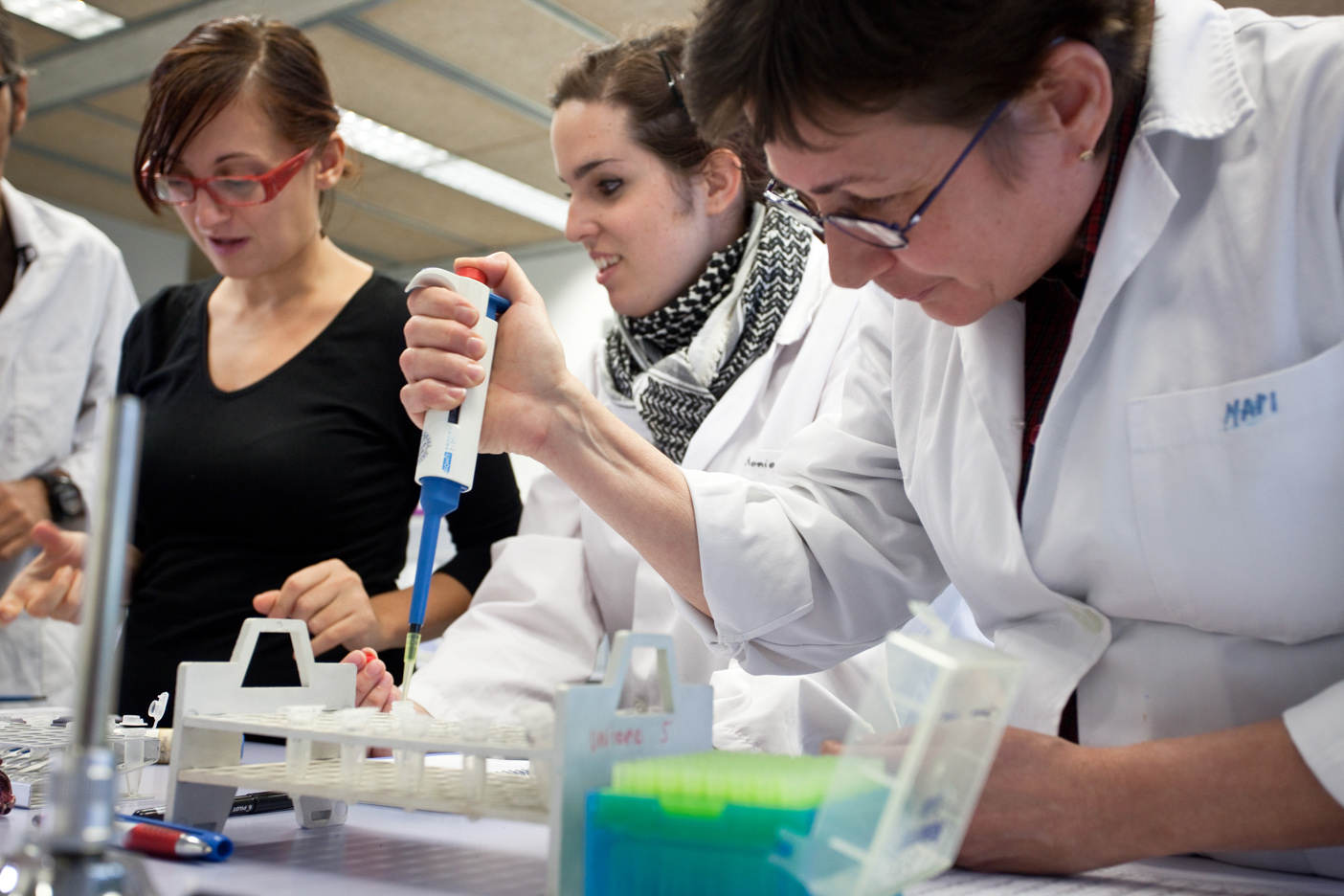
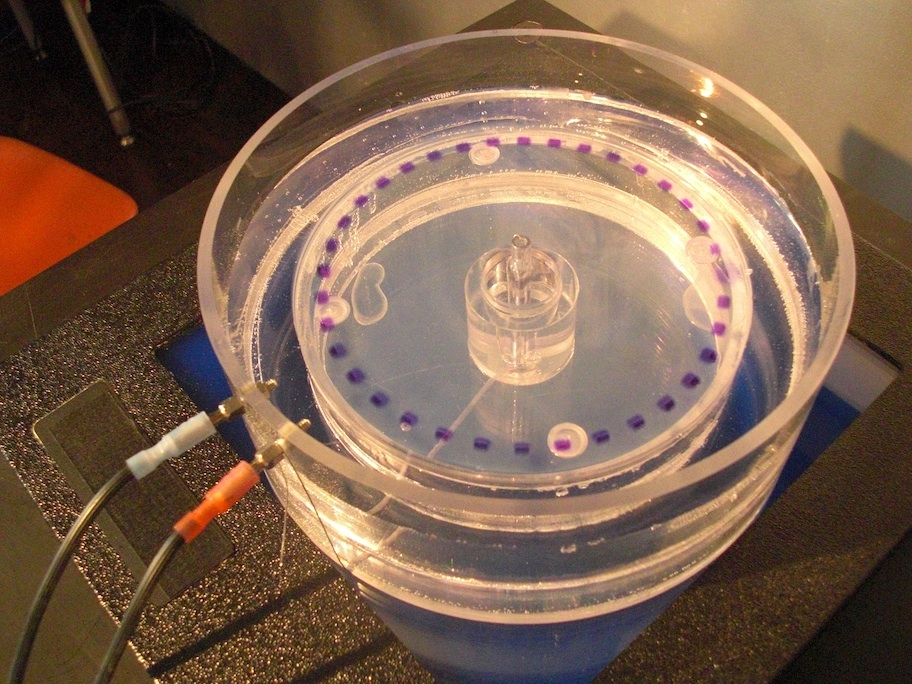
Artists experiment with techno-scientific media forms. In so doing, artists both expand these media form’s cultural meanings and representational scope, while also generally diminishing the medium’s authority/veracity. In this workshop, We’ll prepare an electrophoresis gel for the “Ocular Revision” apparatus, while discussing how this circular gel differs from a typical rectangular one and what this might mean. Then participants perform restriction digestion on Lambdaphage DNA and learn how to micropipette DNA samples into the wells of this gel. Finally, we will turn the system on and discuss what samples were added, how they are migrating in the gel, and how this might differ from typical DNA gel experiments.
This workshop examines the relationship between organisms and institutions, subjects/suspects of DNA imaging and the investigative techniques used to image them. Specifically here we examine varied "restriction digests" of "lambda DNA" to invstigate not which organism or individual's DNA was used, but which procedures were used to make each image.
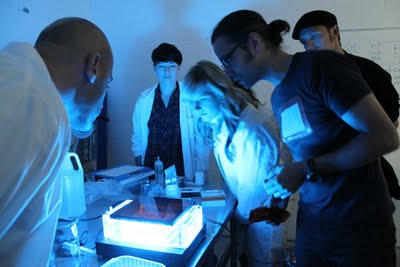
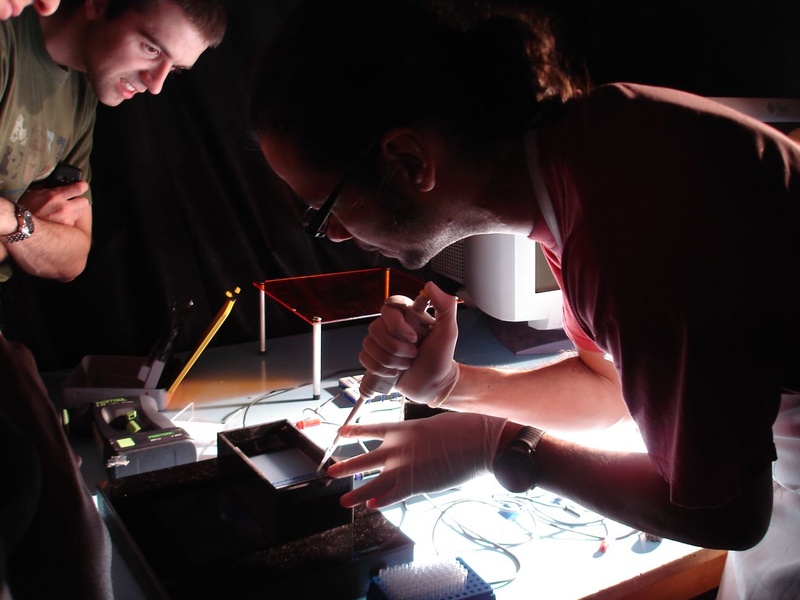
At the heart of this workshop is a hands-on laboratory project in which attendees will carry out restriction digestion of an organisms DNA sample with varied cutting enzymes and then image the restricted samples with gel electrophoresis. Through this hands-on practice, the massive abstraction that is DNA code should become more concrete to participants and deeper questions raised about DNA imaging
This workshop examined bioinformatics from an artist's perspective. Students completed group projects using free, publicly available online databases, and repurposed consumer software as resources.
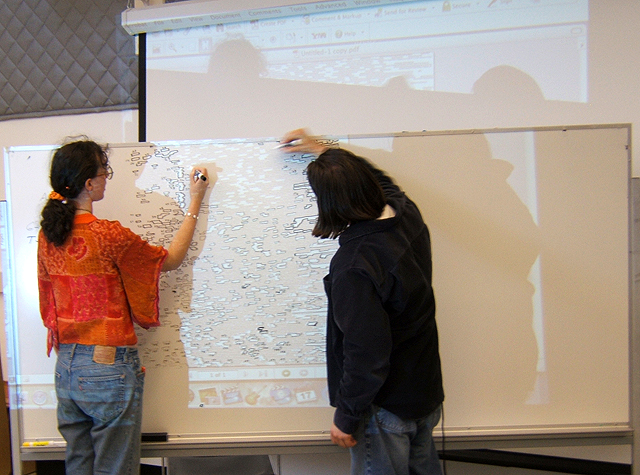
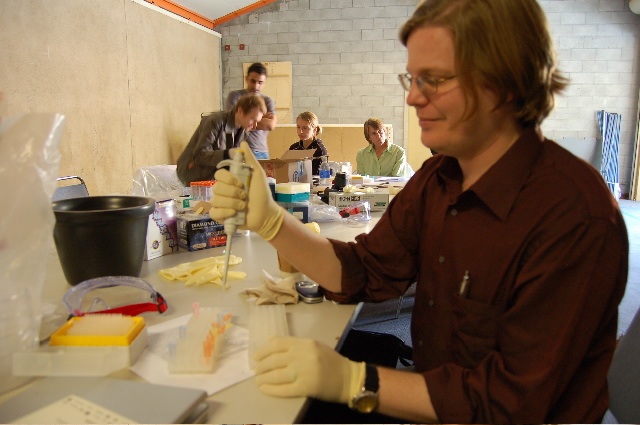
Techniques addressed included: 1.) Constructing and testing a yeast based Pollution Sensor. 2.) Tissue engineering workshop for artists. 3.) DNA separation, visualization and interpretation. 4.) Human-Animal Food. The goal of each workshop is to teach safe, relatively simple procedures that illuminate fundamental principles of molecular biology, to highlight many of the conceptual and ethical issues that have motivated artistic exploration in these areas and to expand the community of artists conversant with these topics.
This workshop explores DNA imaging techniques within a ceative practice. The workshop is an introduction to DNA identification processes, contextualized by discussion of typical uses in the biotech sphere, ultimately aimed at expanding discourse and opening doors for artistic exploration.
The workshop was split into two sections: the first for "digital daycamp" high-school students (pictured here), and the second for the general public.
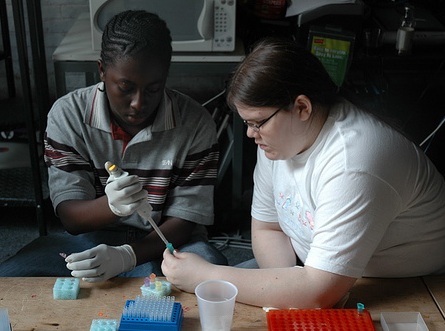
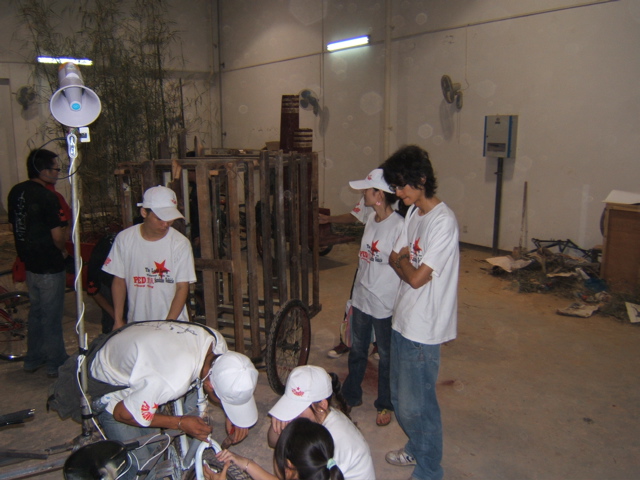
These students of the Fine Arts Institute are learning to build custom mp3 playing loudspeaker systems powered from bicycle generators. The workhop was a component of a two month project and residency and culminated in the project PED.Chongqing.
Participants built low wattage radios, developed a series of short responses to the recent elections, broadcast the responses via inconspicuous mobile stations.
